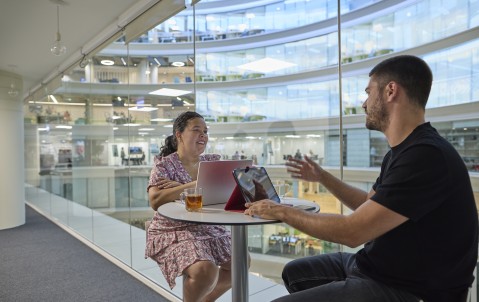Insurance Intellectual Capital Initiative
Increased trend for bundling risk exposes reinsurers to surprise financial shocks
- new report urges reinsurance underwriters to retain their focus on the primary risk
London, 20 September, 2012 -- An increasing trend for bundling risk across multiple territories is reducing transparency and increasing reinsurers’ exposure to surprise financial shocks, according to a major new study ‘Beyond Borders: Charting the Changing Global Reinsurance Landscape’. The report, published following a three year study commissioned by the IICI*, also calls for reinsurance underwriters not to be seduced into an over reliance on models, which pose a threat to the ‘deep knowledge and judgement on which their evaluation of risk is based’.
Profound change in the industry
Consolidated global buyers of reinsurance are causing a profound change in the reinsurance industry says the study, as they centralise their reinsurance buying and elect to buy bundled, global or multi-territory products such as super cats, as opposed to local programmes. In turn, this bundling not only reduces transparency for the reinsurance underwriter but also makes such risks more remote from the specific primary markets being covered, as well as increasing the global connectivity of the reinsurance market and potential for surprise exposures.
Author of the report, Paula Jarzabkowski, Professor at Aston Business School and Marie Curie Fellow, comments: “Reinsurers are risk carriers not risk traders and should not allow their deep knowledge and judgement to be challenged by an over reliance on models. Most reinsurance underwriters have established rituals for judging the physical properties of the financial risks they take but these judgement rituals are under threat, as complex portfolio modelling generates bundled multi-territory products that are remote from the primary risk.
"As the industry goes through such profound change as cedents consolidate and look to bundle risk together, it is absolutely imperative that reinsurers adopt extreme caution in how they embrace the increasing complexity and global connectivity of the reinsurance market."
Bronek Masojada, CEO of Hiscox, a joint sponsor of the report, adds: "We’ve seen in the banking sector what happens when traders become too detached from the risk they take on. This report sends out a clear message to the reinsurance sector that we cannot allow the increasing bundling of risk and dependence on models to cloud the picture when it comes to evaluating the real risk being underwritten."
Time to re-evaluate trading practices
The study also urges reinsurers, cedents and brokers to re-evaluate their trading practices and more clearly define their sources of competitive advantage.
"Our research has clearly defined five different cedent types that differ in their reinsurance buying strategies as well as five different reinsurer types. It is critical that both sides recognise who their natural partners are as they seek to develop the relationships that can yield the highest value. Brokers have a real opportunity here to act as the intelligent matchmaker and add value by increasing the fit between reinsurers and cedent types," concludes Professor Jarzabkowski.
ENDS
For further information, and a copy of the report, please contact:
| Hiscox | |
|
Kylie O’Connor |
+44 (0) 207 448 6656 [email protected] |
| Paper Plane Communications | |
| Sebastian St. John-Clarke | 07779 702191 [email protected] |
Notes:
*‘Beyond Borders: Charting the Changing Global Reinsurance Landscape’ was commissioned by the Insurance Intellectual Capital Initiative and based on more than 400 interviews and 837 ethnographic observations with many of the world’s leading ‘household-names’ in insurance from Allianz to Zurich, and the leading reinsurers and reinsurance broking firms.
The Insurance Intellectual Capital Initiative is a consortium of organisations associated with the Lloyd’s insurance market. It stimulates and funds research into areas of interest to the broader insurance sector, providing industry with an opportunity to invest in and build closer links with the academic community. Supporters of the IICI are Amlin, Aon Benfield, Asia Capital Re, the Economic and Social Research Council, Hiscox, Liberty Syndicate Mgt, Lloyd’s Tercentenary Foundation, the Society of Lloyd’s, Validus and the Worshipful Company of Insurers.
All press releases


